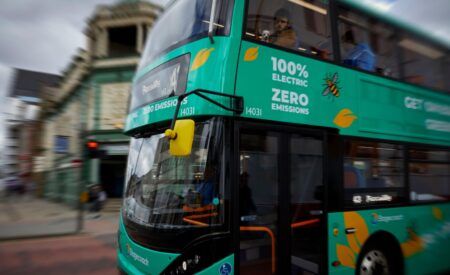The Finnish city of Tampere is supporting a three-year Mobility-as-a-Service (MaaS) ecosystem project, which is being implemented in partnership with Siemens and city-owned public transport operator Tuomi Logistiikka.
The objective of the MaaS concept is to develop transportation services that are as seamless and convenient as possible. This means, for example, that passengers can make the necessary journey from door-to-door with a single fee and the one ticket, even if they use several different modes of transport to make the journey.
One of the distinguishing features of the Tampere project is that it is the first time that publicly-supported rides are a part of the MaaS system, as Tuomi Logistiikka, which is a subsidiary of the city government, organizes travel for people with reduced mobility, for example, as well as the general public. The project will explore the possibilities for making better use of the transport network’s available capacity, and opening it up to other uses cost-effectively.
Public authorities across Europe spend over 1bn (US$1.18bn) annually on publicly supported transport. By using the MaaS solution, it will be possible to achieve significant savings on subsidized transport. Siemens is providing its SiMobility operational platform that makes it is possible to transparently transfer the capacity of the city’s rides, and at the same time enable MaaS operators to expand their operations. The pilot project being implemented will combine publicly-supported rides with the MaaS concept, where privately paid for subscribers also use the mobility system.
“We offer a platform that will connect to transport providers, such as Tuomi Logistiikka, and will be offered by a provider of transport services to a MaaS operator that will sell travel chains to consumers,” explained Siemens business development manager, Veikka Pirhonen. “Tuomi Logistiikka is pioneering using the platform to offer rides, and so they can at the same time enhance their operations.”
Laura Eiro, director of the markets unit and services department at Finland’s Ministry of Transport and Communications, commented, “The task of the Ministry is to support the creation of an environment in Finland where development and marketing of safe, efficient and profitable transport services is possible and attractive. The new Transport Service Act supports this project.”
The City of Tampere’s head of development, Kari Kankaala, added, “The pilot project is a great example of how to boldly and creatively combine different units within the group. This creates new innovations and enables development of the entire MaaS paradigm and the emergence of a marketplace.”




